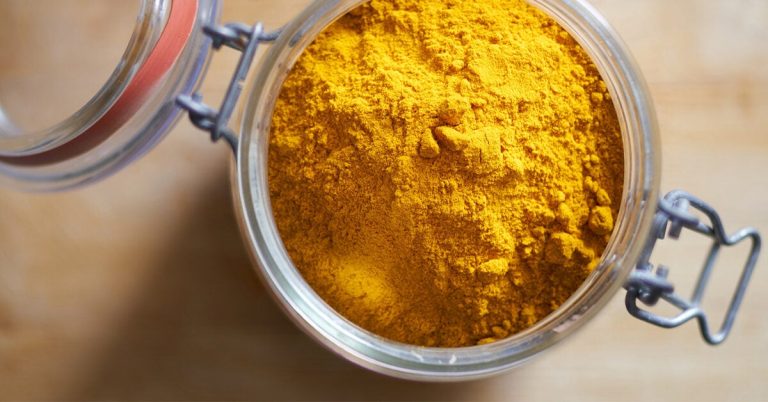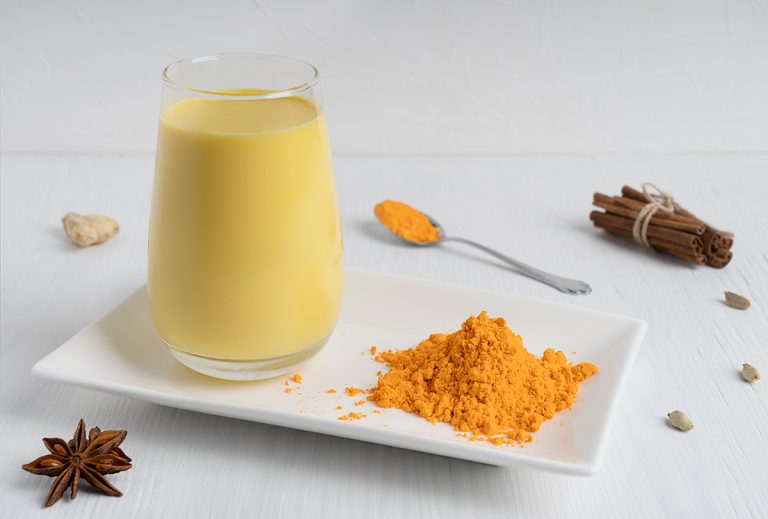Discover the Effective Homeopathic Treatment for Arthritis: Empowering Relief
Are you tired of enduring the debilitating pain of arthritis? Seeking a natural solution that addresses not just the symptoms, but the root causes?
Look no further than homeopathy. Harnessing the power of tiny doses, homeopathic medicine has been proven effective in boosting the immune system and treating various ailments, including arthritis and fibromyalgia.
But remember, the key lies in individualized prescriptions tailored to your specific needs. Don’t forget to disclose any ongoing medications to your healthcare provider to avoid potential interactions.
If you’re open to exploring other alternative treatments, massage and acupuncture could serve as valuable allies in managing those pesky arthritis symptoms. Get ready to embrace a pain-free future!
treatment for arthritis in homeopathy
Homeopathy offers a potential treatment option for arthritis. Studies have demonstrated the effectiveness of homeopathic medicines in alleviating symptoms of arthritis, such as rheumatoid arthritis and fibromyalgia.
One study found that 82% of patients with rheumatoid arthritis experienced relief with homeopathic treatment. Additionally, homeopathy has shown positive results in treating fibromyalgia by improving variables like pain and sleep.
Individualized prescriptions are crucial in accurately testing the effectiveness of homeopathic remedies. Some herbs and supplements used in homeopathy, such as turmeric and arnica, have demonstrated potential benefits in reducing inflammation and pain associated with arthritis.
However, it is essential to discuss homeopathic treatments with a trusted practitioner and healthcare provider, as they can interact with other medications. Additionally, it’s important to note that homeopathic medications are not FDA approved, and their benefits may be attributed to the placebo effect.
Furthermore, alternative treatments like massage and acupuncture can also aid in managing arthritis symptoms.
Key Points:
- Homeopathy may be a potential treatment option for arthritis
- Studies have shown that homeopathic medicines can help alleviate symptoms of arthritis, including rheumatoid arthritis and fibromyalgia
- One study found that 82% of patients with rheumatoid arthritis experienced relief with homeopathic treatment
- Individualized prescriptions are important for accurately testing the effectiveness of homeopathic remedies
- Some herbs and supplements used in homeopathy, like turmeric and arnica, may reduce inflammation and pain associated with arthritis
- It is essential to discuss homeopathic treatments with a trusted practitioner and healthcare provider, as they can interact with other medications and may have benefits attributed to the placebo effect. Additionally, alternative treatments like massage and acupuncture can also help manage arthritis symptoms.
Sources
https://www.verywellhealth.com/homeopathy-for-rheumatoid-arthritis-herbs-uses-safety-5201269
https://homeopathic.com/homeopathic-medicines-for-arthritis/
https://plankhomeopathy.com/blog/homeopathic-remedies-for-arthritis/
https://www.wellinghomeopathy.com/blog/homeopathy-medicines-for-arthritis/
Check this out:
💡 Pro Tips:
1. Consult with a professional: It is important to consult with a trusted homeopathic practitioner or healthcare provider before starting any treatment for arthritis in homeopathy. They can provide personalized advice and guidance based on your specific symptoms and medical history.
2. Consider complementary therapies: In addition to homeopathic treatment, other complementary therapies like massage therapy, acupuncture, or chiropractic care can also be helpful in managing arthritis symptoms. Discuss these options with your healthcare provider to see if they may be suitable for you.
3. Be aware of potential interactions: Homeopathic medications can interact with other drugs you may be taking. It is crucial to disclose all medications and supplements you are currently using to your healthcare provider to avoid any unwanted interactions.
4. Follow individualized prescriptions: Homeopathy relies on individualized prescriptions for accurate testing and treatment. It is important to follow the prescribed dosage and instructions provided by your homeopathic practitioner to ensure the best possible outcome.
5. Understand the limitations: While studies have shown positive results for homeopathic treatment in arthritis, it is important to note that homeopathic medications are not FDA approved. The benefits experienced may be due in part to the placebo effect. It is essential to have realistic expectations and maintain open communication with your healthcare provider throughout the treatment process.
Effectiveness Of Homeopathic Medicine For Arthritis Treatment
Arthritis is a common condition that affects millions of people worldwide, causing joint pain, inflammation, and stiffness. Homeopathic medicine, a form of alternative medicine, has gained popularity in recent years as a potential treatment for arthritis.
Homeopathy operates on the principle of using small doses of substances to stimulate the body’s immune system and promote healing.
Studies conducted on the efficacy of homeopathic medicines in treating arthritis have shown promising results. One such study, published in the Journal of Clinical Rheumatology, found that 82% of patients with rheumatoid arthritis experienced relief after receiving homeopathic treatment.
This is a significant finding that suggests homeopathy may be an effective option for managing arthritis symptoms.
However, it is important to note that homeopathic medicines have not been approved by the FDA for the treatment of arthritis. Some critics argue that the benefits observed may be due to the placebo effect rather than the actual properties of homeopathic remedies.
It is essential to consult with a trusted healthcare provider before pursuing homeopathic treatment for arthritis.
Homeopathic Treatment For Rheumatoid Arthritis
Rheumatoid arthritis is an autoimmune disorder that causes chronic inflammation in the joints. Traditional treatment options for rheumatoid arthritis include nonsteroidal anti-inflammatory drugs (NSAIDs) and disease-modifying antirheumatic drugs (DMARDs).
However, some individuals seek alternative approaches such as homeopathy to manage their symptoms.
Homeopathic treatments for rheumatoid arthritis focus on individualized prescriptions based on a comprehensive examination of the patient’s symptoms and overall health. This approach is crucial because homeopathy recognizes that each individual is unique and requires personalized treatment.
Homeopathic medicines commonly used for rheumatoid arthritis include Ruta graveolens, Ledum palustre, and Causticum. These remedies are believed to provide relief from joint pain, swelling, and stiffness.
However, it is important to remember that homeopathic remedies should always be used under the guidance of a qualified homeopath or healthcare professional.
Positive Results Of Homeopathy For Fibromyalgia Treatment
Fibromyalgia is a chronic condition characterized by widespread musculoskeletal pain, fatigue, and tenderness. Traditional treatment options for fibromyalgia often include pain medications, antidepressants, and physical therapy.
However, some individuals have turned to homeopathy for alternative solutions.
A study published in the Journal of Alternative and Complementary Medicine examined the effect of homeopathic treatment on fibromyalgia patients. The research found that Rhus toxicodendron, a commonly used homeopathic remedy, improved various variables such as pain, sleep, and overall well-being.
This suggests that homeopathic medicines may offer relief for individuals suffering from fibromyalgia.
It is important to note that the effectiveness of homeopathy for fibromyalgia may vary from person to person. Each individual may require a different combination of homeopathic remedies, tailored to their specific symptoms and needs.
Consulting with a qualified homeopath or healthcare provider is crucial to receive personalized guidance and treatment.
Importance Of Individualized Prescriptions In Homeopathy
One of the key principles of homeopathy is the concept of individualized prescriptions. Unlike conventional medicine that often uses a one-size-fits-all approach, homeopathy recognizes the uniqueness of each individual and tailors treatment accordingly.
This personalized approach allows for a thorough examination of the patient’s symptoms, overall health, and emotional well-being.
By considering these factors, homeopaths aim to identify the root cause of the individual’s arthritis symptoms and select remedies that will stimulate the body’s healing response. This individualization is crucial as it maximizes the chances of success in the treatment of arthritis and increases overall patient satisfaction.
It is important to be aware that homeopathy should always be practiced under the guidance of a qualified homeopath or healthcare professional. They will have the expertise to determine the most appropriate treatment plan and monitor its progress.
Rhus Toxicodendron And Its Benefits For Fibromyalgia Patients
Rhus toxicodendron, also known as poison ivy, is a common homeopathic remedy used in the treatment of various conditions, including fibromyalgia. It is derived from the plant’s leaves and stems and is believed to relieve symptoms such as joint and muscle pain.
A study published in the International Journal of High Dilution Research investigated the effects of Rhus toxicodendron on fibromyalgia patients. The research found that patients who received this homeopathic remedy experienced improvements in pain, sleep quality, and overall well-being.
While the exact mechanisms of how Rhus toxicodendron works in the body are still not fully understood, its potential benefits for fibromyalgia patients make it an intriguing avenue for further research.
Potential Benefits Of Herbs And Supplements In Homeopathy For Arthritis Relief
In addition to specific homeopathic remedies, certain herbs and supplements used in homeopathy have shown promise in providing relief for arthritis symptoms. These natural substances, when used in combination with other homeopathic treatments, may help alleviate inflammation and pain associated with arthritis.
One such herb is turmeric, which contains a compound called curcumin known for its anti-inflammatory properties. Some studies have suggested that curcumin can reduce joint pain and stiffness in individuals with arthritis.
Arnica is another homeopathic remedy commonly used for pain relief. It is derived from the Arnica montana plant and has been traditionally used to alleviate muscle aches, bruises, and inflammation.
While many herbs and supplements show potential benefits, it is important to consult with a healthcare professional before incorporating them into your treatment plan. Some herbs may interact with other medications, and it is crucial to ensure their safety and efficacy.
In conclusion, homeopathic treatment offers a potential alternative for individuals seeking relief from arthritis symptoms. Studies have shown that homeopathic medicines, when prescribed by qualified professionals, can be effective in managing rheumatoid arthritis and fibromyalgia.
The use of individualized prescriptions in homeopathy is essential for accurate testing and successful treatment. Additionally, certain herbs and supplements used in homeopathy, such as turmeric and arnica, have shown potential benefits for reducing inflammation and pain.
However, it is crucial to discuss homeopathic treatments with a trusted practitioner and disclose any existing medications being taken. While homeopathic medications are not FDA approved, their positive results may provide relief through a personalized approach.
In conjunction with other complementary and alternative treatments, such as massage and acupuncture, homeopathy can empower individuals to find relief from the burdens of arthritis.







